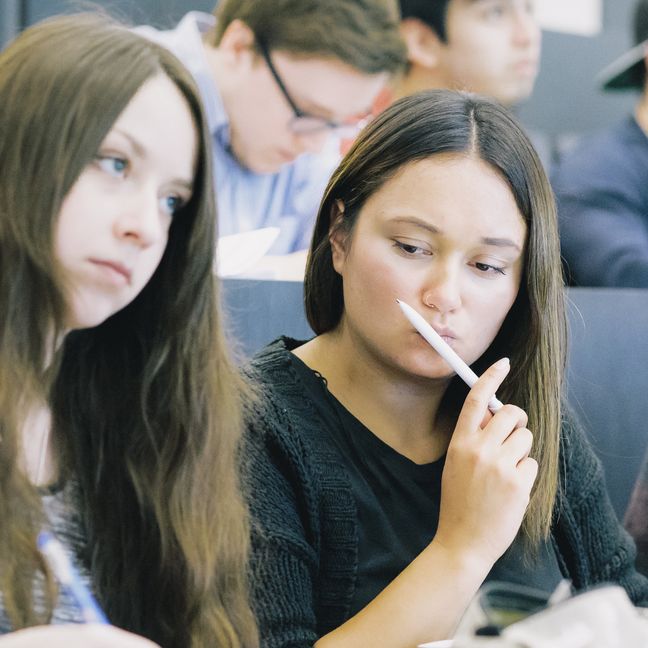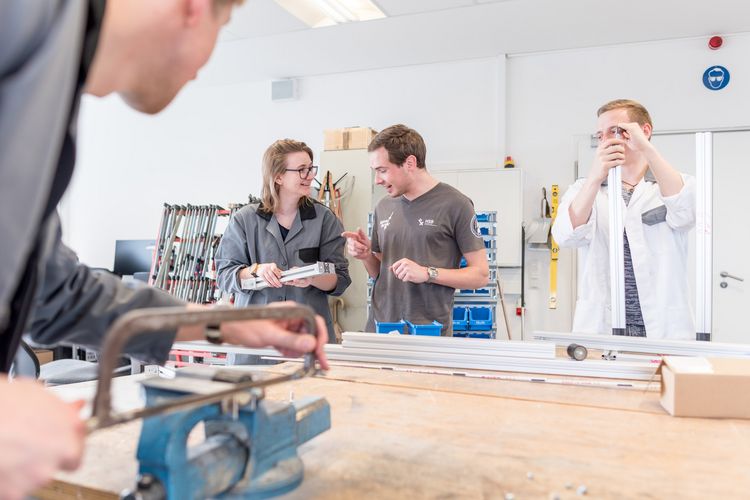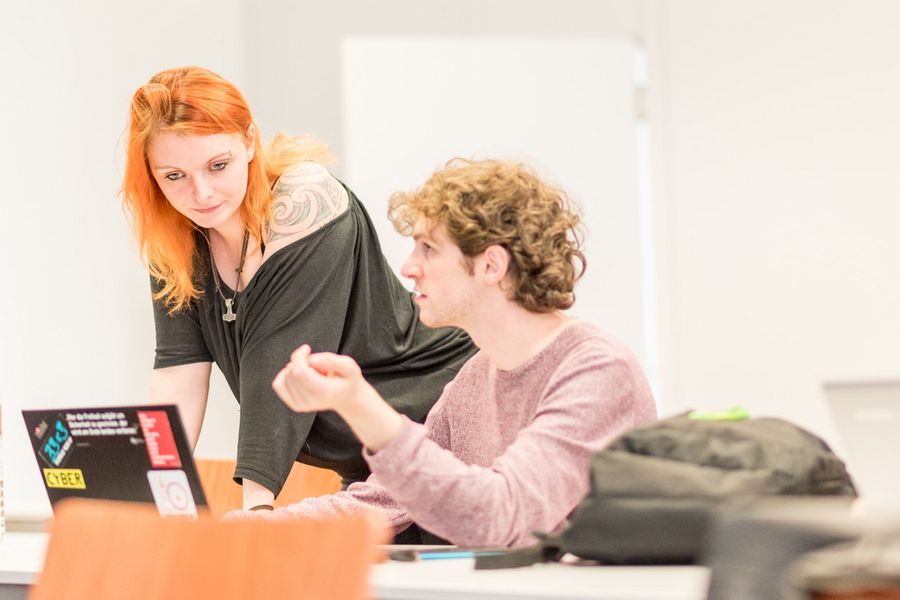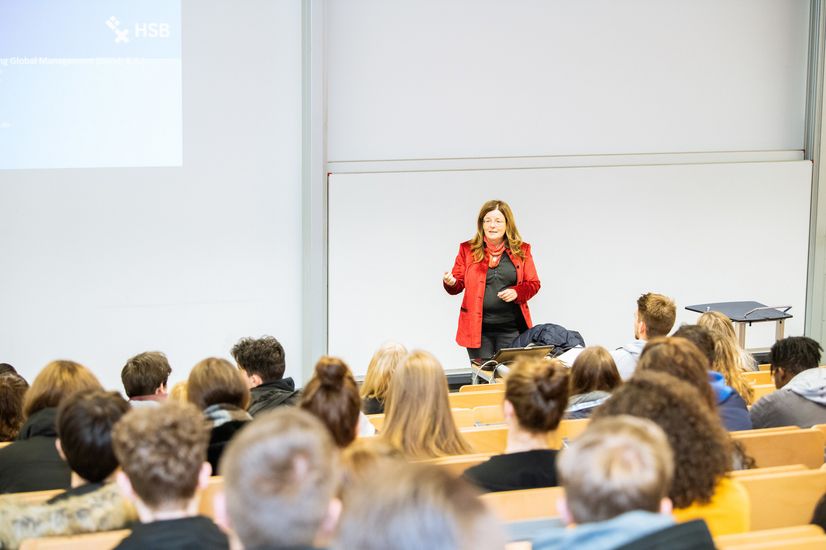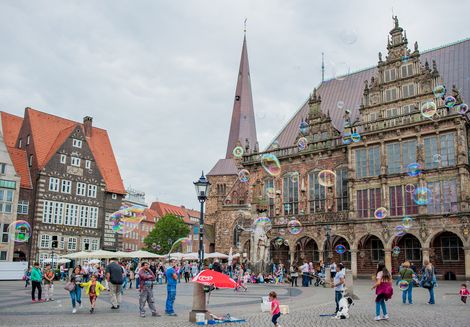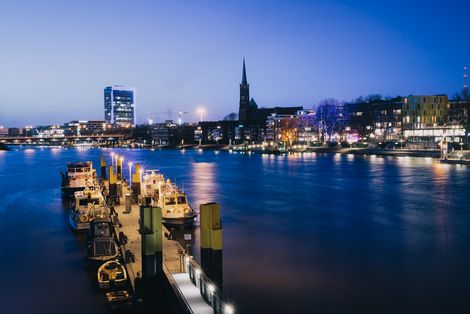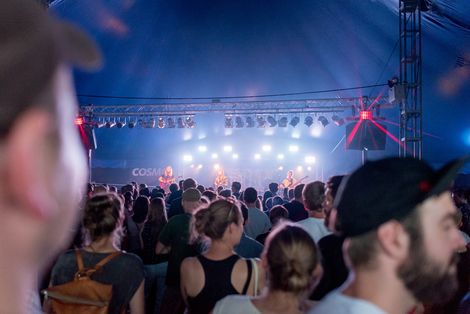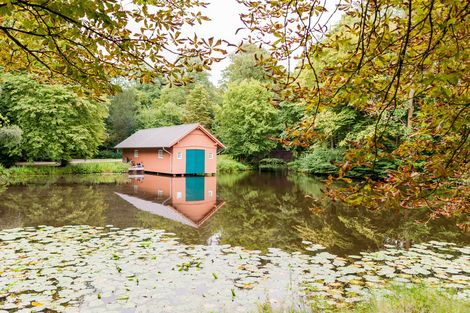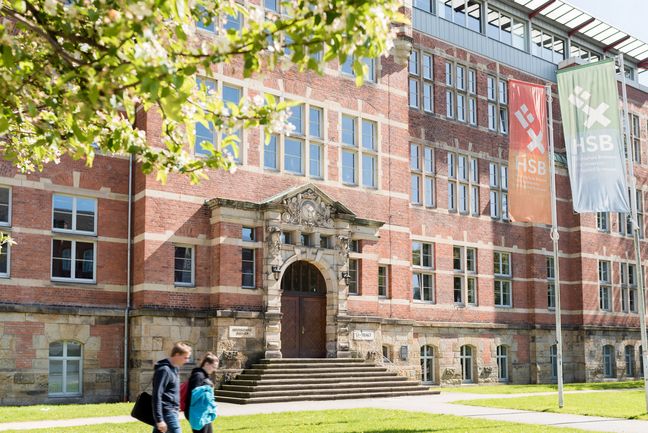
Before your studies
University – yes! But what should you study? It's not that easy to decide which degree programme is right for you – there are over 21,000 degree programmes to choose from in Germany alone. Never mind – we can help you here with a step-by-step guide to your studies! We’ll be happy to advise you in any way we can. You are also free to browse through our many information offers and find orientation yourself.
Is studying at a university something like learning at school, only that it is limited to a single thematic focus? What are semesters, modules, ECTS credits? In the online part of our orientation workshop, we introduce you to what it actually means to study at a university in Germany.
Some degree programmes at HSB are called ‘cooperative’, ‘international’ or ‘European’. What is behind this?
A cooperative degree programme combines academic studies with a formal vocational training in one of HSB’s partner companies, so you get a lot of practical experience and a salary while you're still studying. But you also work more than other students and the time you spend on such a “sandwich course” is shared between university and the company/organisation providing the vocational training. However, you still get the german statutory vacation entitlement.
In the international/European degree programmes, a stay abroad is a compulsory component of the degree programme. The stays abroad are fully integrated in the degree programme and the time you spend at a partner university abroad is recognised for your studies. At the Hochschule Bremen, you get all the support you need to organise everything to do with going abroad. Usually, all students on the international degree programmes go at the same time. Of course, stays abroad are also possible within the framework of all other HSB degree programmes – but there they are not a fixed component that has to be completed within a specified period of time.
University, Technical University (TU), or University of Applied Sciences (Hochschule/Fachhochschule) – what is the difference between these three types of higher education institutions and which is the right one for me?
The differences between University/Technical University and University of Applied Sciences (Hochschule/Fachhochschule) used to be much greater: today, you can study Bachelor's and Master's degree programmes at all types of higher education institutions and in almost all of them you will also find both practical as well as theoretical components. Roughly speaking, if you prefer to study in smaller groups, need structure and want a lot of practical relevance, you are in very good hands at a Fachhochschule or Hochschule.
If you are more interested in theory and prefer to study independently and in larger groups, you might feel more comfortable at a university. Moreover, some degrees are only offered at a university. If you are unsure which type of institution suits you best, we would be happy to advise you!
© Hochschule Bremen - Sven Stolzenwald
There’s a whole host of internet portals that describe degree programmes in Germany. To start your search, we recommend Hochschulkompass, the official portal of the German Rectors' Conference. Here you can search for information independently and free of advertising.
Of course, we present the degree programmes offered by HSB on our website. Once a year we invite potential students to attend the StudienINFOtag (study info day) and StudienINFOwoche (study info week), where we present all our degree programmes. In addition, we regularly offer other information events about studying at HSB.
It's not so easy, but it can be done: think carefully about your personal interests and abilities, ask others and seek advice. We also offer support with our orientation programmes and open up opportunities to get in touch with current students to receive tips and personal advice.
The Study Interests Test of the Higher Education Compass will also help you find a degree programme that suits you.
At HSB you can study in the fields of natural sciences, engineering, business, health and society. Whether your interest lies in the development of electric drives, nursing, urban development, the efficient use of renewable energies, social cohesion or the development of mobile apps – practical application is always the focus of study and research.
Many degree programmes include work placements with companies or organisations and/or stays abroad – we attach particular importance to the practical relevance and international orientation of studies.
students in the academic year 2020/2021
bachelor's and master's degree programmes
international cooperations
There are no general tuition fees in the state of Bremen. At HSB, you only need to pay tuition fees if you choose to study an MBA or master’s programme at the International Graduate Center.
However, you need to pay a contribution per semester. In exchange, you will receive, among other things, meals at reduced costs in the canteens and the semester ticket, which lets you use public transportation throughout Germany free of charge.
Depending on the degree programme, you may be required to purchase materials or literature, or pay to take part in field trips.
There are different ways to finance your studies. You can find more information about BAföG (government grant), scholarships and student jobs at the link:
Some future students still need to consider or organise other matters when choosing their studies. We have special counselling services to support you if you are
Maritime tradition, high-tech location, cosmopolitanism and Gemütlichkeit are not mutually exclusive in Bremen. Despite half a million inhabitants, the people living here describe the city as a "village with a tram". A wide range of sporting and cultural activities and the unspoiled surrounding countryside provide abundant opportunities for students to enjoy themselves outside the lecture hall.
The Hochschule Bremen is located right in the middle of Bremen. Thanks to its central position, all HSB campus locations are easily accessible by public transport. With the so-called semester ticket, students can travel free of charge by bus and train throughout Germany. Or you can ride your bike in the bicycle district that surrounds HSB (a first in Germany) repair café.
The cost of living in Bremen is manageable; on average, our students spend between 300 and 400 euros per month on accommodation. Of course, it also depends on what you want (shared flat, live alone, hall of residence) and the district (popular with students are the Neustadt, the Viertel, and Walle).
Hochschule Bremen, Campus Neustadtswall, M-Gebäude
© HSB - Sabrina Peters
In addition to the Fachhochschulreife or the Abitur, some of our degree programmes have further requirements, such as proof of placements or language certificates. Find out in good time on the website of the degree programme you are interested in. Prospective students from abroad may also have to have their higher education entrance qualification checked and provide evidence of their German language skills.
Applications for programmes that start in the winter semester must be submitted sometime in summer – and applications for studies beginning in the summer semester in winter. You can find the current application periods and deadlines on the page "Application and Admission".
You apply online, but the procedure may differ from programme to programme. Further information on the application procedure can be found on the page "Application and Admission" as well as on the respective degree programme pages.
Congratulations, we look forward to seeing you! You can find out what happens after enrolment and how we support you at the start of your studies and in the following semesters on our fresher page.
